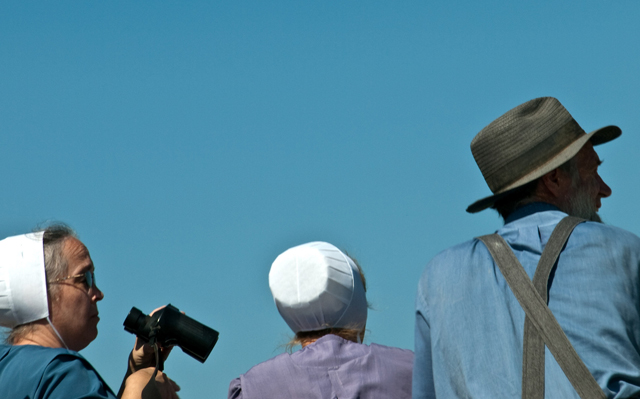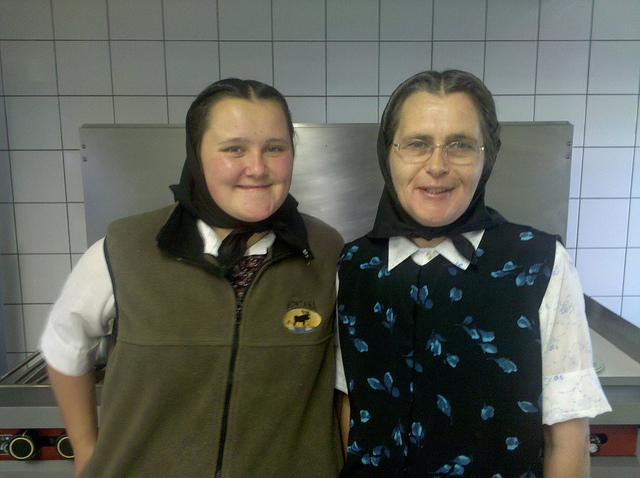National Public Radio broadcast a feature last week about the cooperation between a Hutterite colony in Montana and a dude ranch/resort complex located five hours away. The complex, called The Resort at Paws Up, has a long tradition of friendly cooperation with the Cool Spring Hutterite Colony that predates some of its present employees.

The article on the NPR website provides some useful information about the Hutterites as well an explanation about the cooperative project with the resort. By way of background, the reporter explains to the listeners that the Hutterites, much like the Amish and the Mennonites, live by the principle of nonresistance, the belief that one must not resist authorities, even when their demands are unjust. The central values of the Hutterites, who live in colonies of less than 150 people on the prairies of western Canada and the United States, focus on hard work as well as their faith and their families.
Jake Waldner, a Hutterite man from the Cool Spring Colony, describes to the reporter in the course of their conversation the fallacies in a National Geographic program about the Hutterites that it produced and broadcast in 2012. The special, mostly filmed at the King Colony just west of Lewistown, Montana, was widely criticized at the time by the Hutterites and by other authorities (see news stories in June and August 2012).

To judge by Mr. Waldner’s comments to NPR, it still rankles. The program, “American Colony: Meet the Hutterites,” wasn’t very accurate, he says. It avoided mentioning the importance of religion to the Hutterites—it presented “such a false reality,” in his opinion. It showed a number of inaccurate situations and activities at the King Colony that the Hutterites simply don’t do. There was “a lot of under-the-table stuff that was acted out and not even close to [how] real Hutterites live,” Waldner tells the reporter.
Waldner is the chicken boss at the Cool Spring Colony, which raises 8,000 chickens, 1,000 turkeys and 1,000 ducks annually. The birds are raised free-range, without antibiotics or hormones, and they are fed wheat and barley that are grown on the 9,600-acre property. Once they are processed, Waldner delivers them to local stores, farm markets, and businesses such as Paws Up. He sometimes leaves the colony at 2 a.m. in order to deliver the meat to customers early in the morning.
Waldner met the executive chef at Paws Up 14 years ago at a weekly farm market in Missoula, Montana. He explains that the chef invited him to stop over to the resort and see how they use chickens. “From that day we clicked, and a great relationship began,” he says. The colony still supplies the birds for the resort, an arrangement that was sealed on a handshake deal between the two men. A new executive chef at the resort, Sunny Jin, was willing to continue the relationship, celebrated recently with the reporter present by a dessert for the kitchen crew of strawberry-rhubarb pie brought by Waldner from the colony. “When I came on board, I realized there was a strong partnership here with the Hutterites that was more based on friendship and bartering than monetary gain,” Jin tells NPR.